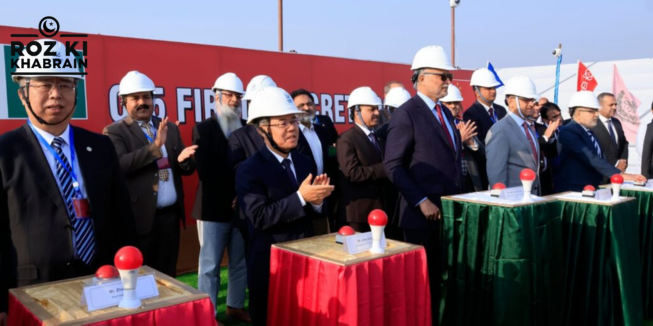ISLAMABAD: China’s Ambassador to Pakistan, Jiang Zaidong, announced on Monday that the construction of the Chashma Nuclear Power Plant Unit-5 (C-5) is expected to generate 40,000 jobs, both directly and indirectly, during its peak construction phase.
Speaking at the first concrete-laying ceremony for the project, the ambassador congratulated both nations on their commitment to fostering long-term practical cooperation. He highlighted Pakistan’s strategic advantages in location, language, and human resources, which, when combined with China’s expertise in technology, capital, and market experience, can help explore third-party markets.
Ambassador Zaidong also noted that China’s direct investment accounted for 41% of Pakistan’s total foreign investment over the past five months, as per the State Bank of Pakistan. He emphasized this as evidence of the vitality and potential of market-driven collaborations, even amid a challenging global economic environment.
He praised the progress in China-Pakistan relations, particularly under the China-Pakistan Economic Corridor (CPEC). “We aim to advance high-quality development, balancing quantitative growth with qualitative improvement, and coordinating efforts on major signature projects as well as smaller public welfare initiatives,” he stated.
The ambassador reaffirmed China’s commitment to strengthening ties with Pakistan, aiming to create an upgraded version of CPEC and enhance cooperation in both traditional and emerging areas. He underscored the importance of coordinated efforts to promote non-CPEC projects alongside CPEC initiatives.
Highlighting key achievements, Ambassador Zaidong pointed to the Suki Kinari Hydropower Station, which has begun commercial operations, and the year-round accessibility of the Khunjerab-Sost Pass. These projects, he said, reflect the resilience and potential of China-Pakistan cooperation.
He expressed hope for Pakistan’s continued efforts to maintain and expand this positive momentum, ensuring a favorable business environment for Chinese companies. The ambassador emphasized that successful non-CPEC projects, particularly in power and mining, have shown significant benefits and prospects, bringing substantial economic and social gains while creating numerous jobs.
Ambassador Zaidong concluded by expressing optimism about the future, envisioning deeper infrastructure connectivity, shared standards, and strengthened ties between the people of both nations.




